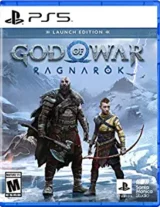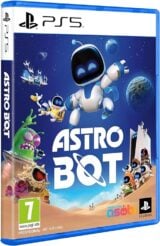PlayStation has been working on NFTs and blockchain technology, Sony patent reveals
It has been researching a system for tracking digital assets in games and across platforms

A newly published patent suggests Sony Interactive Entertainment has been actively exploring the use of NFTs and blockchain technology in games.
NFTs are unique non-interchangeable units of data stored on a blockchain (a form of digital ledger), which effectively allow users to buy and sell digital products like in-game items or artwork.
Originally filed last year and published this month, the Sony patent (via Gamesual) is titled ‘Tracking Unique In-Game Digital Assets Using Tokens on a Distributed Ledger’.
It covers a system which could be used to track the creation of, use, modification, and transfer of digital assets created within a game, and/or assets created based on gameplay of a video game.
“Individuals often find it meaningful to own or use unique physical items related to respected celebrities or activities,” the background section of the patent notes. “For example, fans of skilled baseball player Babe Ruth, or of baseball in general, often seek to purchase and own baseballs autographed by Ruth, baseballs hit by Ruth in an important baseball game, trading cards depicting Ruth, and the like.”
Sony suggests its system could be used to verify the authenticity of digital assets used by skilled players or popular content creators, which other players may want to buy, sell of rent.
“Skilled players of multiplayer video games gain popularity in matches or tournaments, which are often live-streamed or otherwise broadcast to numerous viewers,” it wrote. “Likewise, well-known players often live-stream or otherwise broadcast gameplay of single-player or multiplayer video games, for instance in which the players perform or attempt speed-runs, in-game challenges, multiplayer matches, or other gameplay activities. Some players who are particularly skilled or charismatic can develop large followings of devoted fans, much like fan followings for famous athletes, singers, actors, or other celebrities.
“In some video games, a player can use digital assets during gameplay. Such digital assets can include, for example, specific characters, costumes, or items. In traditional video games, multiple instances of the same in-game item exist within the same copy of the video game and/or within different copies of the video game.
“These different instances of the same in-game item are traditionally fungible, as they are indistinguishable from one another. For instance, even if a particular in-game item is rare to obtain within the video game, the in-game item is represented in the video game as a string of code that is identical to representations of other instances of the same in-game item in the same video game, and / or in other copies of the same video game. Thus, in traditional video games, no one digital asset is unique from other instances of the same in-game item.
“As a result, in traditional video games, there is no way to know, track, or authenticate a history of a particular instance of an in-game item. For instance, in traditional video games, there is no way to differentiate a specific instance of an in-game item that a famous player of the video game used to win a famous tournament from any other instance of the in-game item.”
Sony said the systems and technologies described in its patent application could be used to track the lifecycle of digital assets across different hardware platforms, including those “of a different albeit inferior manufacturer”, and across titles from various publishers.
It wrote: “The techniques and technologies described herein expand the capabilities of digital assets associated with video games, and of systems that create and manage such digital assets, by converting the digital assets associated with video games from being fungible to being non-fungible.
“The techniques and technologies described herein expand the functionality of digital assets associated with video games, and of systems that create and manage such digital assets, by tracking a history of the digital assets.
“Tracking the history of the digital assets can include, for example, tracking when, how, and by whom the digital asset was created, used, modified, rented to, rented by, sold to, purchased by, licensed to, licensed by, exchanged to, exchanged by, and / or other actions.”
Sony recently launched a new loyalty scheme called PlayStation Stars, which enables players to earn digital rewards by completing various activities. However, it was quick to distance the program from NFTs, which have attracted criticism in some quarters due to the format’s high carbon footprint and what many perceive to be cynical implementation.

“It’s definitely not NFTs,” Grace Chen, PlayStation’s vice president of network advertising, loyalty and licensed merchandise, told The Washington Post. “Definitely not. You can’t trade them or sell them. It is not leveraging any blockchain technologies and definitely not NFTs.”
Gaming companies that have launched NFT projects or are considering doing so include Square Enix, Ubisoft, Konami and Sega.
















